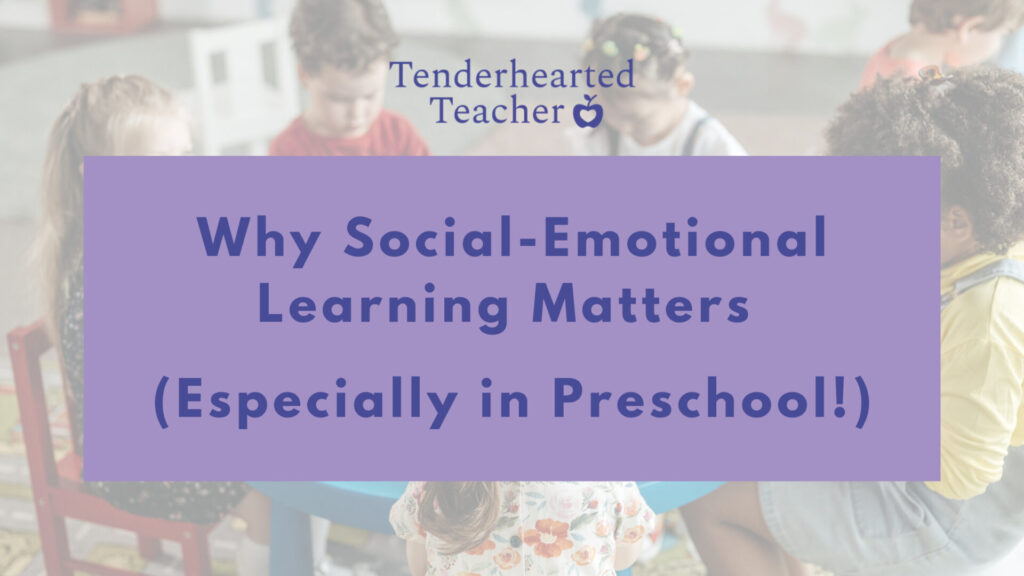
Does anyone else read the news and absolutely cringe at stories of adults throwing major tantrums and becoming violent—with everyone from flight attendants to cashiers— for simply being asked to follow directions? I feel like every day I hear about another instance of this happening. And when I do I can’t help but think, “Wow, there are just so many adults who cannot manage their emotions in a healthy way.” This, in turn, makes me think why social-emotional learning matters so much.
Listen, I know there is a lot to be stressed out about in this day and age. But, I think we can all agree that being frustrated, stressed out, or even angry still doesn’t give anyone the right to be violent with someone else. We would never be okay with our own child behaving in this way, right?
So Why Do We Continue to See Adults Acting Like This?
I, personally, think it may have to do with the fact that there was a larger focus on academic learning and achievement rather than emotional learning for many decades. Neglecting this important area of development left many people underprepared to handle and express the big emotions that come with every day life. This deficit in social-emotional learning matters not only at an individual level, but on a societal one as well. When one person acts negatively it can impact many others around them.
Therefore, it’s critical to explicitly teach social-emotional skills (like self-regulation, empathy, mindfulness) in the same way other content is taught. I also think that the best time to start teaching social-emotional skills is in early childhood. It should also continue to be taught all throughout a child’s educational journey from preschool to high school and beyond.
What Does The Research Say?
Research has shown that the development of early self-regulatory skills (a type of social-emotional learning) is often predictive of a child’s future success, i.e. greater self-esteem, better health, etc. and a lack of self-regulation has been associated with negative future outcomes such as poor health, substance abuse, anxiety/depression, etc. (Razza et al, 2015).
“Investment in early education, therefore, has the potential to increase health and reduce risk behaviors over the life span,
thus reducing overall societal costs”
(Flook et al, 2015, p. 44).
But, What Exactly Is Social-Emotional Learning And Why Does it Matter?
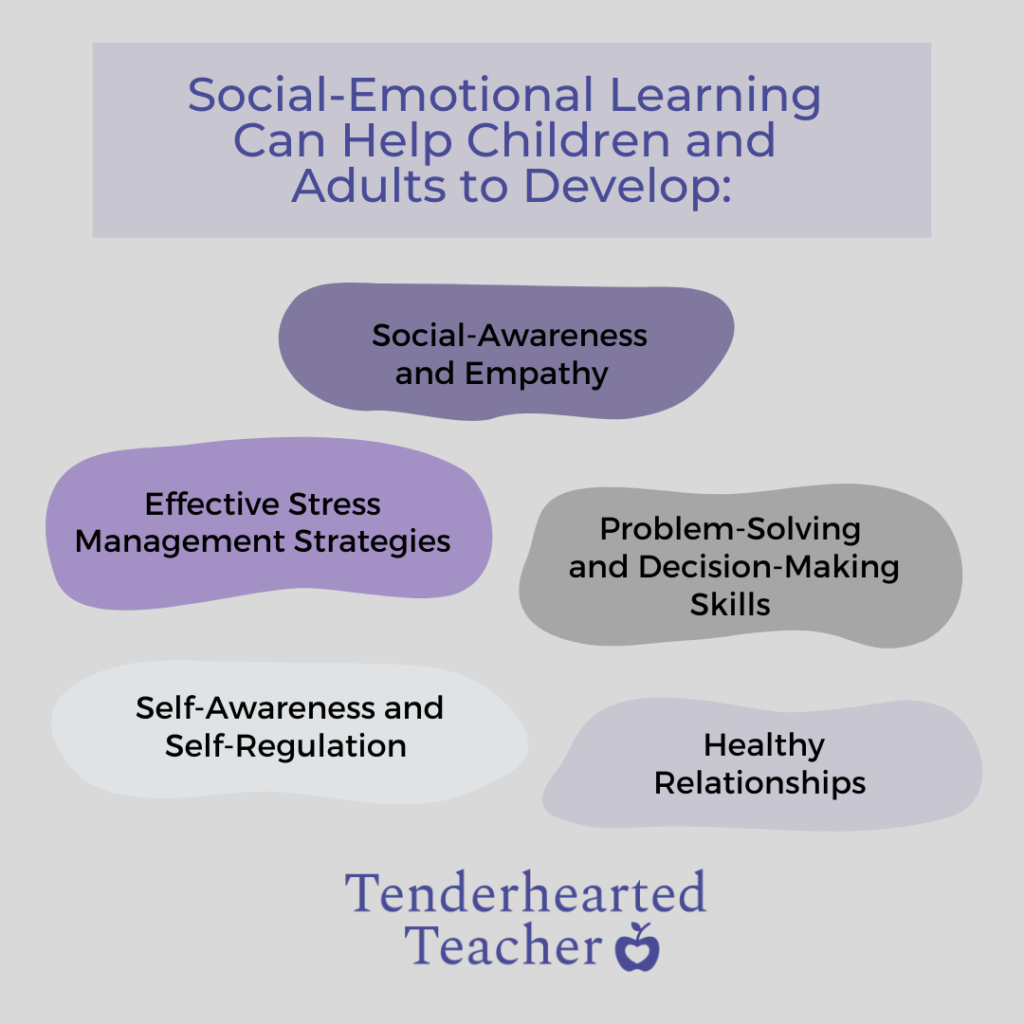
According to the Collaborative for Academic, Social, and Emotional Learning (CASEL) it is “an integral part of education and human development. SEL is the process through which all young people and adults acquire and apply the knowledge, skills, and attitudes to develop healthy identities, manage emotions and achieve personal and collective goals, feel and show empathy for others, establish and maintain supportive relationships, and make responsible and caring decisions.”
CASEL also states that there are five broad and interrelated areas of social emotional competence. They are self-awareness, self-management, social awareness, relationship skills, and responsible decision-making.
What Can You Do As a Parent?
It’s important to remember what social-emotional learning means in the context of early childhood. Preschoolers are still learning how to interact with peers and adults. So they will need to learn how to appropriately communicate with others, share toys, and take turns, for example. They should also learn to name basic emotions as well as learn effective strategies to manage them. Some people expect young children to know how to do these things innately. But, that’s not how it works. Kids must learn these skills with the help of the adults around them.
So your goal, as a parent or caregiver, should be to model the behaviors you would like to see in your child. Let’s say you want your child to speak kindly to their friends. You want to make sure you use kind language when you speak to your child. You’ll also want to speak kindly to family and community members in front of your child. Social-emotional skills can also be taught through role-playing, reading stories, board games, etc.
My Plans To Educate Others About Social-Emotional Learning
As I’ve stated before in my introduction, I truly believe that SEL should be considered equally as important as academic learning. Why? Because, again, social-emotional learning matters not only for us as individuals, but also for us as a world community. If you want to learn 5 ways to encourage SEL in young children click here.
Finally, I’m happy to say that there has been a recent shift in education. Many school districts are now beginning to make social-emotional learning a priority in the classroom. But there is still a long way to go. So as parents it’s our job to advocate for our children. Please make sure you talk to your child’s teacher or school administrator. Find out what your school is doing to implement social-emotional learning curricula. Also ask how you can reinforce what’s being taught at home.
Now talk to me! Do you feel SEL was important in your childhood? Did your guardians help you learn how to positively express your feelings? If not, is this something you’re actively working on in adulthood to try to teach your own little one? Share your comments or questions below.
References:
Flook, L., Goldberg, S. B., Pinger, L., & Davidson, R. J. (2015). Promoting prosocial behavior and self-regulatory skills in preschool children through a mindfulness-based Kindness Curriculum. Developmental psychology, 51(1), 44–51. https://doi.org/10.1037/a0038256
Fundamentals of SEL. CASEL. (2021, September 10). Retrieved September 27, 2021, from https://casel.org/fundamentals-of-sel/.
Razza, R. A., Bergen-Cico, D., & Raymond, K. (2015). Enhancing preschoolers’ self-regulation via mindful yoga. Journal of Child and Family Studies, 24(2), 372-385. https://doi.org/10.1007/s10826-013-9847-6
SAVE TO PINTEREST
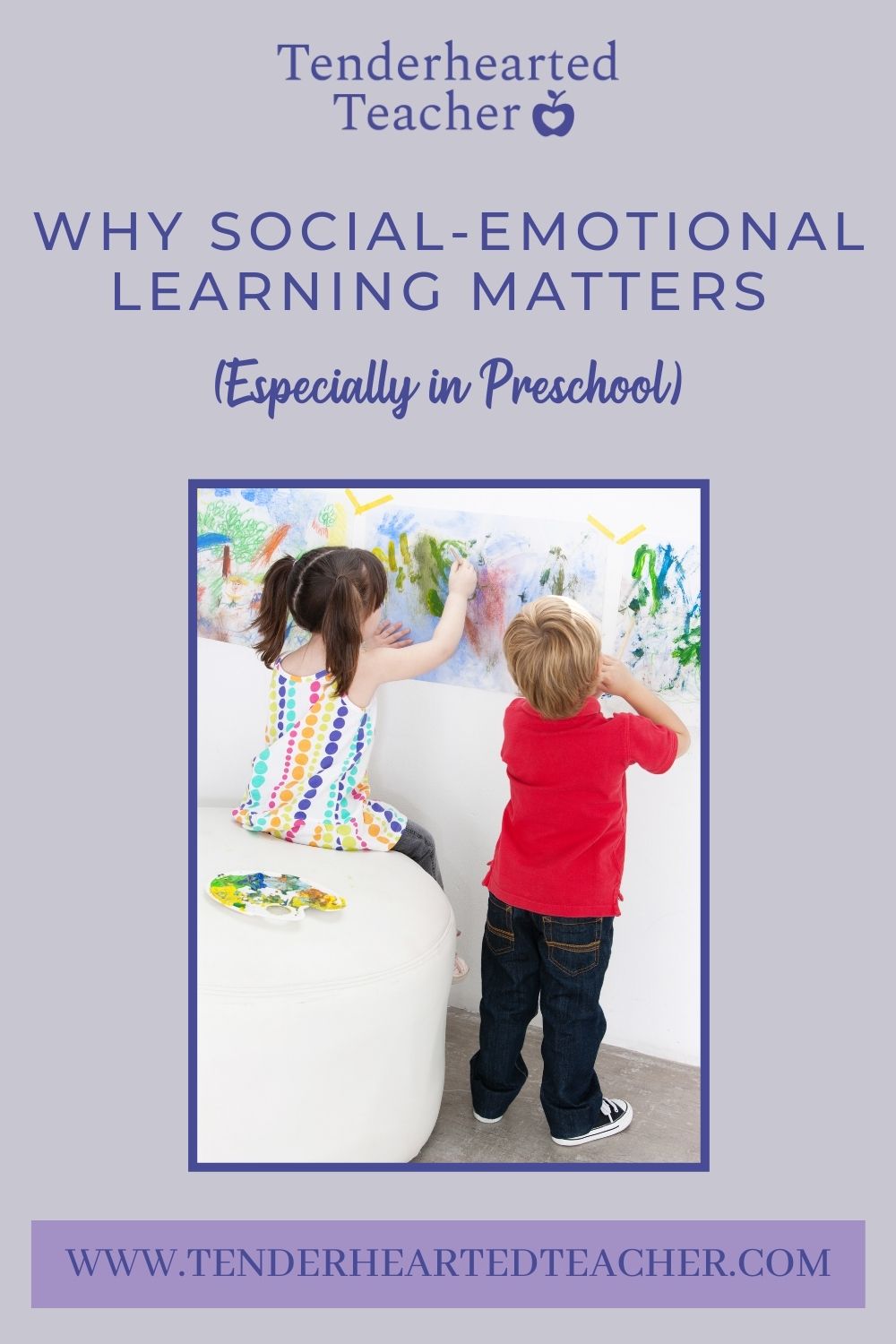
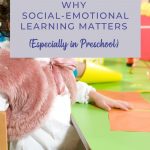
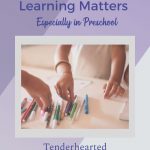
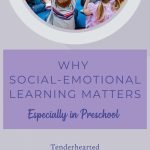
Oh man, that first paragraph nails it! And I agree with your theory that for years we overemphasized academics at the expense of social-emotional skills. Thanks for writing this.
Thank you for your comment Jenn! I’m optimistic that we can create a better future for us all if we prioritize social-emotional learning in our homes and in our schools!
First of all, I love to see you citing in APA. I’ve never come across such an educational blog before! I used to be a professor of English Education, giving courses for future high school teachers and preparing them for their edTPA. On the side, I acquired Montessori certificates for Early Childhood and Elementary, precisely because I thought that SEL falls short in our standard educational system in the U.S. Likewise, I would love to see more focus on critical thinking. For my own child, born four years ago, I picked a Montessori kindergarten that teaches the whole child in a prepared environment, with freedom of choice and child-centered and nature-exposed activities. My son cut his own fruit with a knife at 18 months of age. He learned to solve real-life problems and participated in tasks that otherwise, mommy would do for her toddler (such as laying the table and cleaning up). He was one with nature. We moved to Europe two years ago due to the pandemic, and I have always favored the German educational system (and the childcare system and health care system, for that matter). But here, too, I would like to see more empathy and tolerance taught in the classrooms. “Your freedom ends where the next person’s freedom begins.” We adults are supposed to model good behavior for our children. The pandemic has really shown us lots of pent-up emotions, anger, and distrust. We need to learn to deal with it for our kids’ sake.
Thank you for your comment and for sharing your background, Chrissy. Your post totally made my day! I couldn’t agree with you more. In fact, it’s really why I started this blog. My hope is that I can provide caregivers with the tools they need to help their children thrive in and out of the classroom. 🙂
This is a great conversation to have as parents, and that educators and school districts are hopefully having as well! I was never exposed to social-emotional learning, either at home or at school. Thankfully I had friends and siblings to turn to for support. It has been a struggle adopting positive parenting principles with my two children, but I’ve come a long way and I’m very proud of the relationship I’ve cultivated with my children <3
It’s always interesting to see and hear different peoples’ perspectives on these issues. Thanks for sharing.
Yes! I agree with you. When one person acts negatively it can impact many others around them. Therefore, it’s critical to explicitly teach social-emotional skills (like self-regulation, empathy, mindfulness) in the same way other content is taught. I also think that the best time to start teaching social-emotional skills is in early childhood. It should also continue to be taught all throughout a child’s educational journey from preschool to high school and beyond.